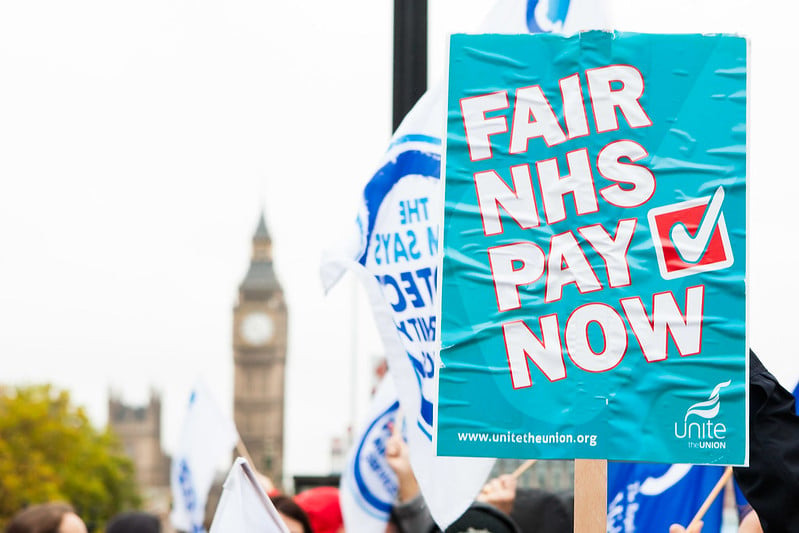UK nurses could walk out this summer if their demands for better pay aren’t met, as frustration grows over a proposed 3% pay rise that union leaders say falls short of what’s needed.
Speaking at the Royal College of Nursing’s (RCN) annual conference in Liverpool, Prof Nicola Ranger delivered a stark message to the government: “If you continue to insult this profession, leave it ailing and underpaid this summer, then you know how this could escalate.”
The warning comes as nurses face mounting pressures. Their pay has dropped by a quarter in real terms since 2010, while many are struggling with unsafe working conditions. Some nurses report caring for up to 40 patients alone during shifts – a situation Prof Ranger calls “dreadfully unsafe.”
The current dispute centers on the NHS Pay Review Body’s recommendation of roughly 3% for 2025-26. This figure sits slightly above the government’s 2.8% public sector pay cap but well below what nurses say they need to recover years of lost wages.
Similar Posts
Young people are increasingly turning away from nursing careers, put off by low starting salaries of £29,970. Nursing course applications have plunged 34% since 2021. The RCN wants starting pay bumped up to £35,000 to attract new talent.
The staffing crisis is set to worsen, with one in five NHS nurses – about 175,000 people – expected to retire within ten years. Currently, over 34,000 nursing positions sit empty across the UK.
The government maintains it’s working to fix these problems. “We hugely value the work of talented nurses and midwives,” a spokesperson said, noting they recently awarded nurses their first above-inflation pay rise in years.
But union leaders say more urgent action is needed. While Prof Ranger isn’t explicitly calling for strikes yet, she’s clear that nurses won’t accept continued delays on pay decisions. The government has already missed its deadline for announcing the 2025-26 pay award by six weeks.
If strikes do happen, they would follow unprecedented industrial action from 2022-23, when nurses walked out for eight days. That dispute ended with a 5% raise for 2023-24.

The situation reflects wider unrest in healthcare, with resident doctors also threatening extended strikes unless they receive a 10% increase. Meanwhile, Scotland has offered its NHS nurses, midwives and other staff 8% over two years – 4.25% this year and 3.75% in 2026-27.
For now, the RCN is surveying members about the government’s proposals and their willingness to take action. The next crucial step will be the government’s official response to the Pay Review Body’s recommendations, which could determine whether nurses hit the picket lines this summer.


















